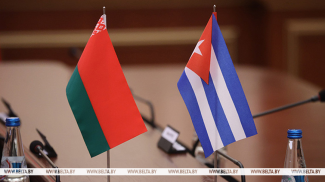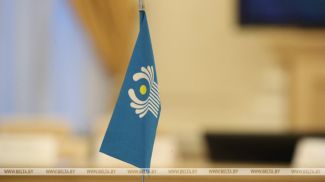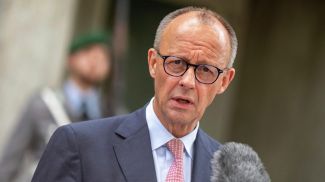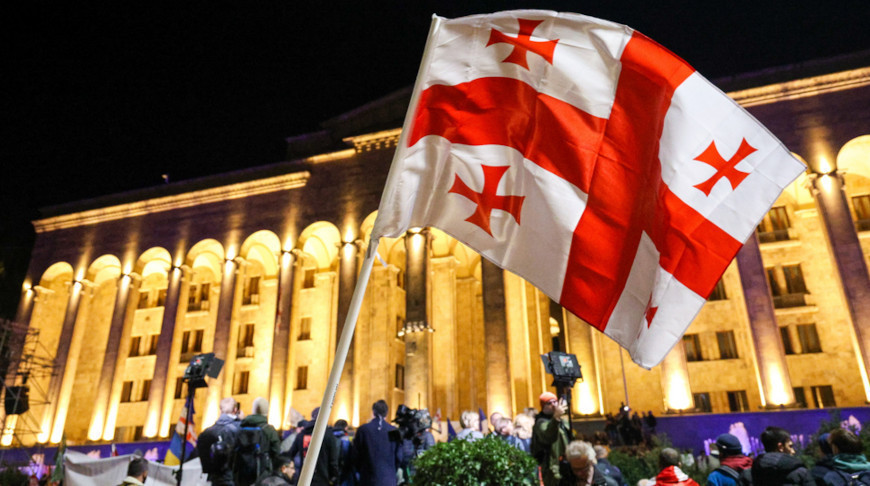
There is one fundamental difference between the concepts of "democracy" and "Western democracy". In the first case it implies the power of the people, and, consequently, of the majority. The second case is about the power of the minority, and sometimes even minorities. How does it work? Well, let's say, if a candidate supported by the majority of voters wins the election, then this is the most democratic thing that there is. But if the West wants to declare another candidate supported by a minority as the winner, then Western democracy comes into play with a set of tools and manipulations inherent in it.
In this regard, there is probably no better example than Georgia. It was here that the first color-coded revolution in the post-Soviet space took place 20 years ago, opening the door to the Western democracy. The Rose Revolution promised to integrate Georgia into the Western world, to bring it closer to Western values, ideals and, of course, living standards. But for two decades, the famous "American dream" has not become a reality for Georgians. As a result, it was replaced by another dream - the Georgian one. It is promoted by the current ruling party "Georgian Dream - Democratic Georgia".
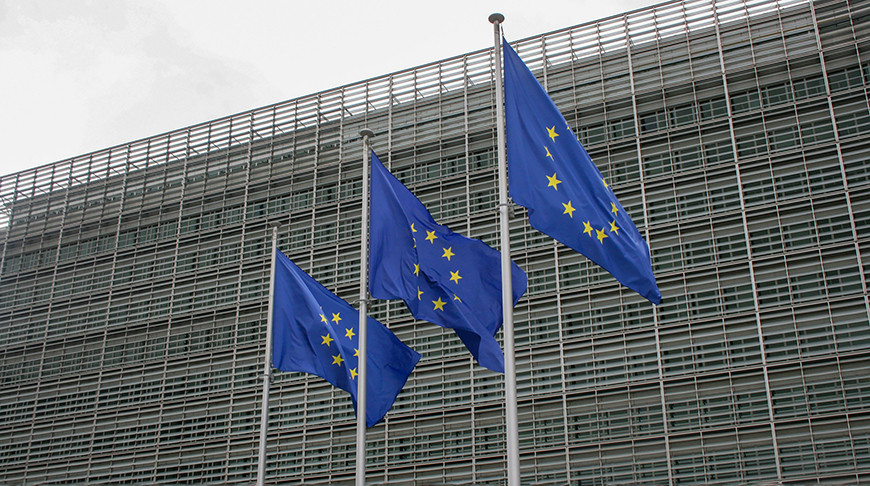
Georgian-style democracy stands up for family values and rejects LGBT propaganda. It began to shine light on foreign agents of influence, who took the phrase "feel at home" too literally. Most importantly, it refuses to support the anti-Russian sanctions and to open a second front against Russia. Tbilisi has not changed its way at all; it is still reaching for the West. But, as mentioned above, the Georgian dream and democracy has prioritized national, not Western interests. They do not envision destruction of domestic economy and dragging the country into the abyss of war.
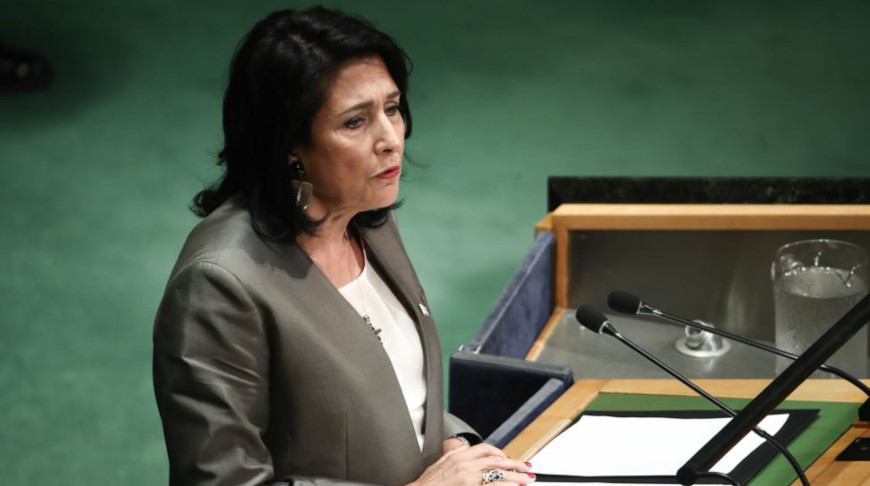
Such democracy is definitely unacceptable for the West. It does not fit into the approved template. Such democracy is more difficult to manage and use for its own purposes. Therefore, such democracy should be rejected. The West is making considerable efforts to do so right now.
Parliamentary elections were held in Georgia one month ago, on 26 October. More than half of the voters (53.93%) voted for the Georgian Dream. Democracy - majority rule - gave the ruling party carte blanche to rule the country for the next four years.
It is worth noting that Georgian Dream received more votes than the four leading opposition parties combined. The most “successful” of the opposition club was the Coalition for Change, with only 11.03% of votes. It turned out that even this minority was enough to organize a rampant Western democracy in the country.
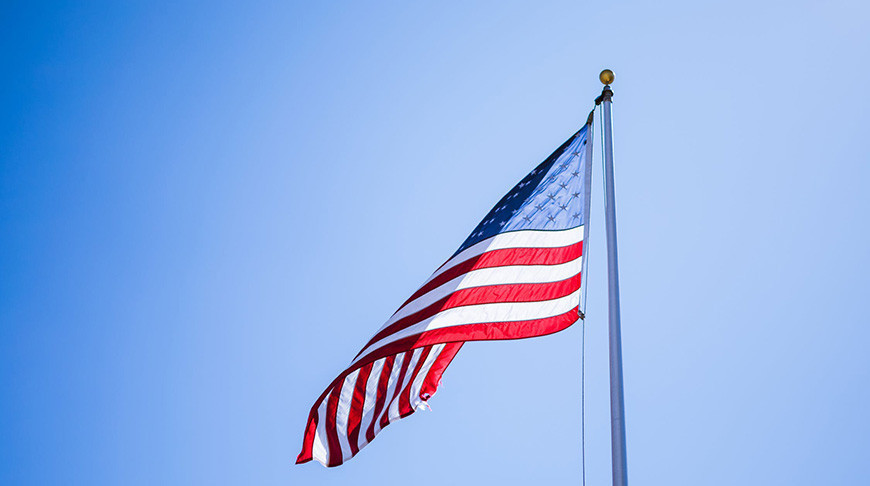
The West has tried to make Georgia fit its templates before. Last year, Western democracy began to sway the society little by little against the background of the parliament’s consideration of the foreign agents law. A minority gave in. This, however, was enough only for colorful photos from protests and scuffles with the police. Then the West had to bring in the heavy artillery. First, the United States, which has its own law on foreign agents, suddenly announced a review of strategic relations with Georgia and froze aid for it. Then Brussels actually blocked the process of Georgia's admission to the European Union.
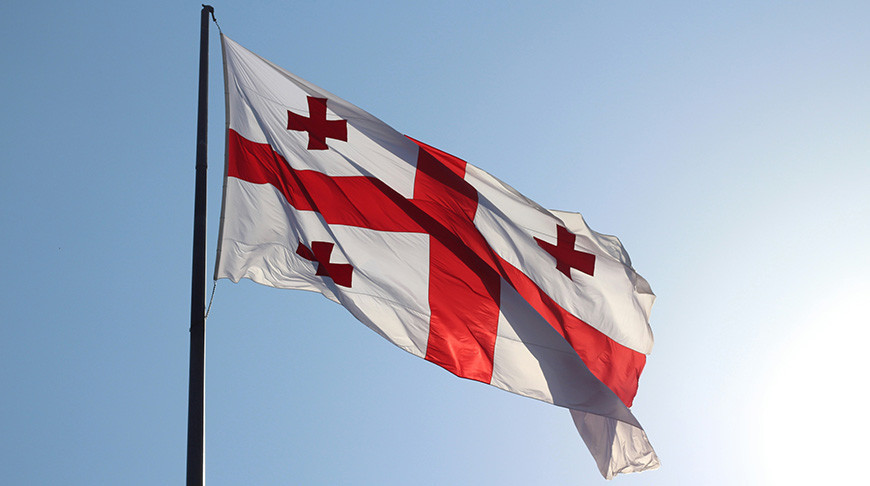
In this regard, there is probably no better example than Georgia. It was here that the first color-coded revolution in the post-Soviet space took place 20 years ago, opening the door to the Western democracy. The Rose Revolution promised to integrate Georgia into the Western world, to bring it closer to Western values, ideals and, of course, living standards. But for two decades, the famous "American dream" has not become a reality for Georgians. As a result, it was replaced by another dream - the Georgian one. It is promoted by the current ruling party "Georgian Dream - Democratic Georgia".

The very name of the party, in addition to "dream", has the word "democracy". But it is not about Western democracy, but Georgian democracy. No, it does not reject Tbilisi's aspirations towards the West. Yet, it prioritizes the traditions, culture and national interests of the Georgian people.
Georgian-style democracy stands up for family values and rejects LGBT propaganda. It began to shine light on foreign agents of influence, who took the phrase "feel at home" too literally. Most importantly, it refuses to support the anti-Russian sanctions and to open a second front against Russia. Tbilisi has not changed its way at all; it is still reaching for the West. But, as mentioned above, the Georgian dream and democracy has prioritized national, not Western interests. They do not envision destruction of domestic economy and dragging the country into the abyss of war.

Such democracy is definitely unacceptable for the West. It does not fit into the approved template. Such democracy is more difficult to manage and use for its own purposes. Therefore, such democracy should be rejected. The West is making considerable efforts to do so right now.
Parliamentary elections were held in Georgia one month ago, on 26 October. More than half of the voters (53.93%) voted for the Georgian Dream. Democracy - majority rule - gave the ruling party carte blanche to rule the country for the next four years.
It is worth noting that Georgian Dream received more votes than the four leading opposition parties combined. The most “successful” of the opposition club was the Coalition for Change, with only 11.03% of votes. It turned out that even this minority was enough to organize a rampant Western democracy in the country.

The West has tried to make Georgia fit its templates before. Last year, Western democracy began to sway the society little by little against the background of the parliament’s consideration of the foreign agents law. A minority gave in. This, however, was enough only for colorful photos from protests and scuffles with the police. Then the West had to bring in the heavy artillery. First, the United States, which has its own law on foreign agents, suddenly announced a review of strategic relations with Georgia and froze aid for it. Then Brussels actually blocked the process of Georgia's admission to the European Union.
As the parliamentary elections were drawing closer, the West's rhetoric towards Georgia became increasingly harsh. At some point, Tbilisi was overwhelmed by an avalanche of threats and ultimatums. A few days before the vote, EU Ambassador to Georgia Pawel Herczynski promised to strip Tbilisi of all financial aid from the European Union if the country's authorities did not change course.
The ruling party did not change course. And people supported it. The majority of Georgians voted for a dream, the minority for change. The majority, having expressed their will at polling stations, calmly went home. The minority lost, but remained on the streets. At the suggestion of Western political technologists, the minority set up a stage in front of parliament and started chanting slogans about their “legitimate” right for re-elections. From that point, the minority started looking like majority.

In order to give the minority a little more weight, Western democracies began to send its envoys to Tbilisi. Greta Thunberg, a Swedish environmental activist and influencer among teenagers and young people, was one of the first to attend the Georgian opposition rally. Then a caravan of MEPs arrived from Germany, France, Poland, Lithuania, Latvia, Finland, Sweden and Estonia. They all addressed the protesters, calling on the minority to “fight for democracy” and promising sanctions to the majority.
Speaker of the Georgian Parliament Shalva Papuashvili refused to meet with the European “contingent”, comparing the “love” of the Western visitors for the Georgian people to the kiss of Judas.
But Georgian President Salome Zourabichvili welcomed the European deputies as if they were her own. It is not surprising at all. She was a guardian of Western democracy even before the elections, when she openly asked Georgians to vote for the opposition. And later she claimed that the elections were rigged providing no evidence and lamented that the diaspora “did not save” Georgia (as in the elections in Moldova) and called on the country’s residents to take to the streets in protest.
The ruling party did not change course. And people supported it. The majority of Georgians voted for a dream, the minority for change. The majority, having expressed their will at polling stations, calmly went home. The minority lost, but remained on the streets. At the suggestion of Western political technologists, the minority set up a stage in front of parliament and started chanting slogans about their “legitimate” right for re-elections. From that point, the minority started looking like majority.

In order to give the minority a little more weight, Western democracies began to send its envoys to Tbilisi. Greta Thunberg, a Swedish environmental activist and influencer among teenagers and young people, was one of the first to attend the Georgian opposition rally. Then a caravan of MEPs arrived from Germany, France, Poland, Lithuania, Latvia, Finland, Sweden and Estonia. They all addressed the protesters, calling on the minority to “fight for democracy” and promising sanctions to the majority.
Speaker of the Georgian Parliament Shalva Papuashvili refused to meet with the European “contingent”, comparing the “love” of the Western visitors for the Georgian people to the kiss of Judas.
But Georgian President Salome Zourabichvili welcomed the European deputies as if they were her own. It is not surprising at all. She was a guardian of Western democracy even before the elections, when she openly asked Georgians to vote for the opposition. And later she claimed that the elections were rigged providing no evidence and lamented that the diaspora “did not save” Georgia (as in the elections in Moldova) and called on the country’s residents to take to the streets in protest.
Speaking at one of the press briefings, Salome Zourabichvili addressed the protesters: "I would like to greet from here the people who are out on the streets today and will probably stay there overnight. First of all, I’d like to greet the students, because they are the force for progress in any country. They lead their country into the future."

"From here" (from a warm, cozy conference room) you can greet, call and send people to the slaughter. Especially if your presidential term expires in a month, and then you may safely resume your French citizenship. The only question is what will be left for Georgians who do not have a house in France. It does not matter whether they belong to the majority or the minority, winners or losers. They share the common destiny since they live in one and the same country.
Zourabichvili appealed to the Constitutional Court demanding to declare the elections unconstitutional. The opposition has announced its intentions to set up an alternative parliament or, in other words, to create dual power in the country. This means that the West will continue to destroy Georgia trying to bend it to its will.
Will the country be able to withstand? Nowadays, there are two good, but different examples for Georgians: Belarus and Ukraine. While one country was developing, prioritizing peace and unity as the highest values, the other was sowing discord, fomenting hatred, endlessly dividing the nation. In the first one, the majority won. In the second, there are no winners and will never be any.
What path Georgia will take now mostly depends on the ruling party. The Georgian people have put their trust in the Georgian Dream. The incumbent authorities should work hard to justify the trust.
By Vita KHANATAEVA,
BelTA.
Photos courtesy of TASS, Unsplash







